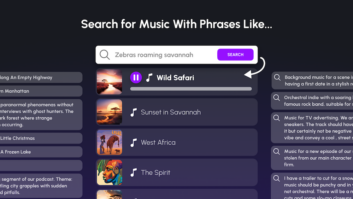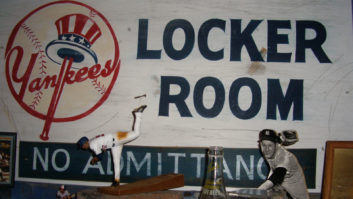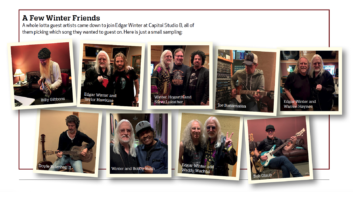The Internet has become integral to audio in more ways than can be counted, and now another aspect has been added to the list. Pro audio’s putatively first flame site was launched last December, by a project studio owner who decided to use the Net as a vehicle to vent his frustrations with a manufacturer. He set up a Web site, published his complaints, invited responses-and, in the process-catapulted the already changing relationship between pro audio manufacturer and customer into yet another dimension.
This flame site incident illustrates how the Internet is becoming a trope for a universe of new rules that affect the fundamentals of this business. For starters, the degree to which people in this industry are plugged in was dramatically underscored by the range of responses the two sides drew. And the site is merely a blip on the screen compared to the large and still-growing number of usenets, chat groups and general-purpose connectivity out there between pro audio users and manufacturers.
Another point this incident illustrates is how the Internet changes the playing field, not only in pro audio but in all commerce. Once, if you wanted to vent, you might have needed a few thousand dollars for an ad in a magazine or newspaper, the way Ross Perot still does it. But thanks to the Internet, you can use $50 worth of site-building software, and search engines globally start finding it before its metaphorical paint is dry.
In an era of marketing and branding, when perception is everything, all companies will have to find ways to deal with the inevitable perceptions that accompany situations like these. In a recent report in Kiplinger’s magazine (April ’99), a disgruntled customer set up a site complaining about Bekins moving company; within minutes, Bekins called the complainant’s attorney to offer full restitution if the site were shut down. Dunkin’ Donuts reportedly bought another irate customer’s site. It’s an almost knee-jerk reaction to view the consumer in these situations as a David battling the corporate Goliath, and what’s actually right or wrong in each instance often comes in second to the perceived battle. Competition is tough enough. Big companies are going to need more than Tylenol to deal with this new headache.
And the power of the Internet to affect the studio business is even broader. Scratch the surface at any record label function and you’ll quickly find a very sensitive nerve associated with MP3, the compressed audio file format that in less than a year threatens to make the huge distribution networks of major record labels-and their biggest source of revenues-irrelevant. For studios, however, this could be the break that some have been waiting for, since a fundamental change in the way sound is distributed does not diminish the demand for it. More likely, new forms of Internet music distribution will stimulate demand.
But on a more metaphysical plane, the Internet challenges the very nature of sound and sound quality. Though computer-based sound has come a long way since the days of 8-bit game audio, Internet compression has often worked in exactly the opposite direction, making compromised audio ever more acceptable. When “acceptable” becomes the norm, what defines pro?
If digital audio is seen as the most revolutionary influence on sound since the advent of stereo, expect the Internet to have more effect than those two milestones combined.







